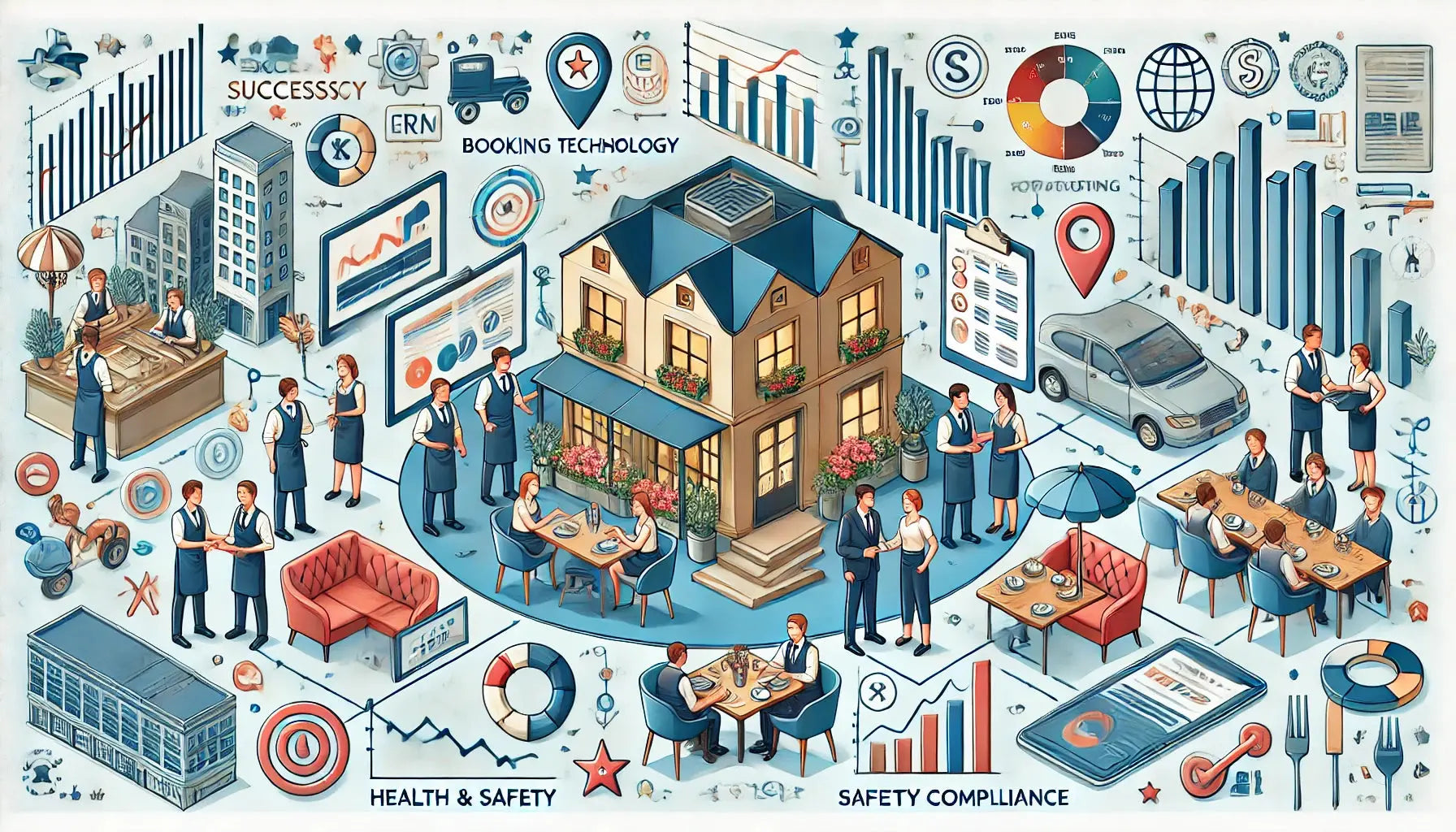
Building for Success in the Hospitality Business: A Comprehensive Guide
The hospitality industry is one of the most dynamic and demanding sectors, requiring a fine balance of excellent service, operational efficiency, and innovative strategies to ensure you are building for successs. For businesses in this sector, achieving and maintaining success is an ongoing process that involves various key elements. This guide outlines critical steps hospitality businesses can take to thrive in a competitive market.
1. Prioritise Customer Experience
The cornerstone of any successful hospitality business is the quality of customer experience. This involves:
- Personalised Service: Tailor services to meet individual customer preferences and needs. Use customer data to anticipate needs and offer personalised recommendations.
- Consistent Quality: Ensure that every aspect of the customer experience, from the cleanliness of rooms to the quality of food, is consistently high.
- Responsive Feedback Mechanisms: Implement systems to gather customer feedback and promptly address any issues or complaints.
2. Invest in Staff Training and Development
Your staff are the face of your business. Investing in their training and development can significantly enhance service quality and customer satisfaction.
- Comprehensive Training Programmes: Provide regular training on customer service, operational procedures, and industry best practices.
- Employee Engagement: Foster a positive work environment where staff feel valued and motivated. Happy employees often translate to happy customers.
- Career Development: Offer clear career progression paths to retain talented staff and reduce turnover.
3. Leverage Technology
Modern technology can streamline operations, improve customer experience, and provide valuable insights into business performance.
- Booking Systems: Use advanced booking and reservation systems to simplify the process for customers and reduce administrative burdens.
- Customer Relationship Management (CRM): Implement a CRM system to manage customer interactions, preferences, and feedback.
- Analytics: Use data analytics to understand customer behaviour, identify trends, and make informed business decisions.
4. Focus on Marketing and Branding
Effective marketing and strong branding are essential for attracting and retaining customers.
- Online Presence: Maintain an active online presence through a well-designed website and engagement on social media platforms.
- Reputation Management: Monitor and manage online reviews and ratings on platforms like TripAdvisor, Yelp, and Google.
- Promotions and Packages: Develop attractive promotions and packages to entice new customers and encourage repeat business.
5. Ensure Operational Efficiency
Efficient operations are vital for maintaining high service standards and controlling costs.
- Inventory Management: Implement robust inventory management systems to prevent shortages and reduce waste.
- Standard Operating Procedures (SOPs): Develop and regularly update SOPs to ensure consistency and efficiency in service delivery.
- Sustainability Practices: Adopt sustainable practices to reduce costs and appeal to environmentally conscious customers.
6. Adapt to Changing Trends
The hospitality industry is constantly evolving, and businesses must adapt to stay relevant.
- Stay Informed: Keep up with industry trends, such as changes in travel patterns, dining preferences, and technological advancements.
- Flexibility: Be prepared to adjust your offerings and operations in response to market changes and customer preferences.
- Innovation: Continuously seek innovative solutions to enhance your services and differentiate your business from competitors.
7. Financial Management
Strong financial management is crucial for the long-term success of any business.
Budgeting and Forecasting: Regularly update budgets and financial forecasts to reflect current conditions and future expectations.
Cost Control: Monitor expenses closely and implement cost-saving measures without compromising on quality.
Revenue Management: Use revenue management techniques to optimise pricing and maximise profitability.
8. Safety and Compliance
Ensuring the safety of your guests and staff is paramount.
- Health and Safety Standards: Adhere to all relevant health and safety regulations and maintain high standards of cleanliness and hygiene.
- Crisis Management: Develop a crisis management plan to handle emergencies, such as natural disasters or health outbreaks, effectively.
- Legal Compliance: Ensure compliance with all local, state, and federal regulations affecting your business.
Conclusion
Success in the hospitality business requires a holistic approach that combines excellent customer service, operational efficiency, effective marketing, and a commitment to continuous improvement. By focusing on these key areas, hospitality businesses can build a strong foundation for sustained success and growth in a competitive industry. We cannot tackle all of these all of the time so take just try to take something from this article and work towards improving your business in a small way.
